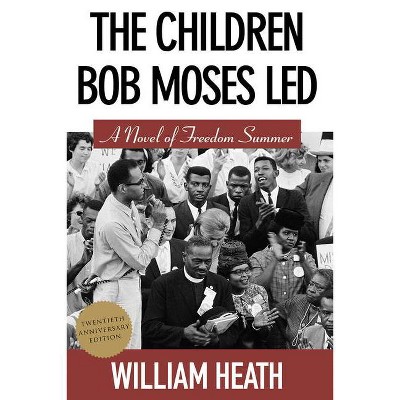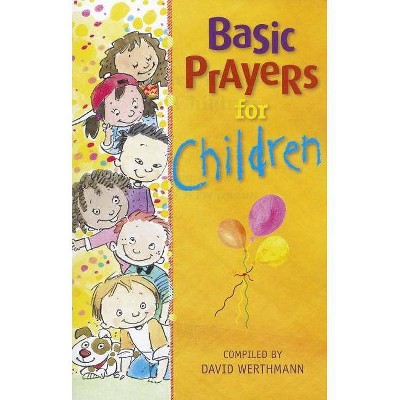Voices for Children - by William T Gormley (Paperback)

Similar Products
Products of same category from the store
AllProduct info
<p/><br></br><p><b> About the Book </b></p></br></br><p>The United States spends more on programs for the elderly than it does on programs that enhance child development and improve child welfare. Why has public policy neglected the development phase of young Americans' lives not only in substantive dollars spent, but also in program design and implementation? Noted child care and education policy expert William Gormley highlights the portrayal of children's issues in both the mass media and in public policymaking to explain why children have gotten short shrift. A key explanation is the limited mass media coverage of strong arguments in support of children's programs.</p> <p>After documenting changes in rhetoric on children and public policy over time and variations across policy domains and government venues, Gormley demonstrates that some issue frames are more effective than others in persuading voters. In two randomized experiments, he finds that economic frames are more effective than moralistic frames in generating public support for children's programs. Independent voters are especially responsive to economic frames. In several illuminating case studies, in Connecticut, Utah, North Carolina, and Pennsylvania, he finds that strong rhetoric makes a difference but that it is sometimes eclipsed by even stronger political and economic constraints.</p> <p> <i>Voices for Children</i> offers a fresh perspective on raging debates over child health, child poverty, child welfare, and education programs at the federal and state levels. It finds some hopeful examples that could transform how we think about children's issues and the kinds of public policies we adopt.</p><p/><br></br><p><b> Book Synopsis </b></p></br></br><p>The United States spends more on programs for the elderly than it does on programs that enhance child development and improve child welfare. Why has public policy neglected the development phase of young Americans' lives not only in substantive dollars spent, but also in program design and implementation? Noted child care and education policy expert William Gormley highlights the portrayal of children's issues in both the mass media and in public policymaking to explain why children have gotten short shrift. A key explanation is the limited mass media coverage of strong arguments in support of children's programs.</p> <p>After documenting changes in rhetoric on children and public policy over time and variations across policy domains and government venues, Gormley demonstrates that some issue frames are more effective than others in persuading voters. In two randomized experiments, he finds that economic frames are more effective than moralistic frames in generating public support for children's programs. Independent voters are especially responsive to economic frames. In several illuminating case studies, in Connecticut, Utah, North Carolina, and Pennsylvania, he finds that strong rhetoric makes a difference but that it is sometimes eclipsed by even stronger political and economic constraints.</p> <p> <i>Voices for Children</i> offers a fresh perspective on raging debates over child health, child poverty, child welfare, and education programs at the federal and state levels. It finds some hopeful examples that could transform how we think about children's issues and the kinds of public policies we adopt.</p><p/><br></br><p><b> Review Quotes </b></p></br></br><br><P>"Gormley's nuanced view of the broader policy environment highlights how policy frames are mediated by economic decline, fiscal constraints, public opinion, partisanship, and the political culture of states. Students of public policy, communications, and social work will benefit enormously from Gormley's contribution to the belated recognition in policy studies that discursive practices are critical to the policy making process. Summing Up: Highly recommended."--CHOICE<br><br><P>"Using a variety of research methodologies--including coding Congressional testimony, interviews with advocates and Capitol Hill staffers, case studies of state policy making, public opinion survey experiments, and more--Gormley looks at the use of various policy arguments in different policy domains and levels and branches of government across a 50-year time period. This multimethod approach provides a strong empirical basis to inform an understanding of how politicians, staffers, policy analysts, advocates, the media, and the American public frame children's policy, and it generates rich, timely, and valuable evidence that can be used by child advocates to develop stronger arguments in future debates over child health, child poverty, child welfare, and education policy."--Social Service Review<br><p/><br></br><p><b> About the Author </b></p></br></br><p> <b>William T. Gormley Jr.</b> is University Professor and professor of government and public policy at Georgetown University and codirector of the Center for Research on Children in the U.S. He is the author of several books, including <i>Organizational Report Cards</i> with David Weimer and <i>Bureaucracy and Democracy</i> with Steven Balla.</p>
Price History
Price Archive shows prices from various stores, lets you see history and find the cheapest. There is no actual sale on the website. For all support, inquiry and suggestion messagescommunication@pricearchive.us




















